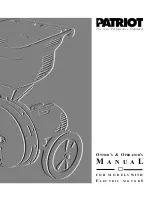
21
0# electric
control box
“ON/OFF” port
ON
Power (DC 12V
)
Main control board is provided
0# electric
control box
“ON/OFF” port
OFF
Power (DC 12V
)
Main control board is provided
Fig. 8-14 Wiring of “ON/OFF ” weak electric port
8.5.10 Wiring of “HEAT/COOL” weak electric
port
The remote function of “HEAT/COOL” must be set by DIP
switch.The remote function “HEAT/COOL” is effective when
S5-3 is chosen ON, at the same time, the wire controller is out
of control. Corresponding parallel connect the “HEAT/COOL”
port of the main unit’s electric control box,then, connect the “ON/
OFF” signal (provide by user) to the “HEAT/COOL” port of main
unit as follows.
Wiring method: Shorting the terminal block XT2 at 14 and 23
inside the electric control box to enable the remote function of
“HEAT/COOL”.
0# electric
control box
“HEAT/COOL” port
COOL
Power (DC 12V
)
Main control board is provided
0# electric
control box
“HEAT/COOL” port
HE
AT
Power (DC 12V
)
Main control board is provided
Fig. 8-15 Wiring of “HEAT/ COOL” weak electric port
8.5.11 Wiring of “ALARM” port
Connect the device provided by user to the “ALARM” ports of
the module units as follows.
electric control box
“ALARM” port
Device provided by user
Fig. 8-16 Wiring of “ALARM” port
If the unit is operating unnormally,the ALARM port is closed,
otherwise,the ALARM port is open.
The ALARM ports are on the main control board. See the
wiring diagram for details.
8.5.12 Control system and installation
precautions
a. Use only shielded wires as control wires. Any other type of
wires may produce a signal interference that will cause the
units to malfunction.
Fig. 8-17-1 Control system and installation precaution (a)
b. The shielding nets at both ends of the shielded wire must be
grounded. Alternatively, the shielding nets of all shielded wires
are interconnected and then connected to earth through or one
metal plate.
Unit
Fig. 8-17-2 Control system and installation precaution (b)
Do not bind the control wire, refrigerant piping and power
cord together. When the power cord and control wire are laid
parallel, they should be kept at a distance of more than 300
mm to prevent signal source interference.
Unit
Fig. 8-17-3 Control system and installation precaution (c)
d. Pay attention to the polarity of the control wire when
conducting wiring operations.
Fig. 8-17-4 Control system and installation precaution (d)
















































